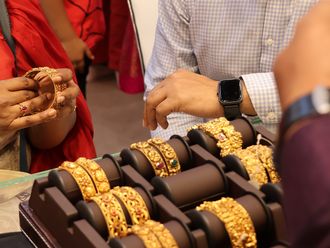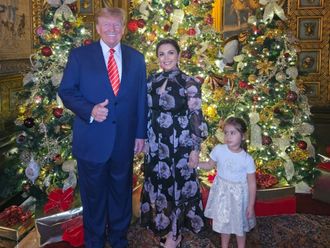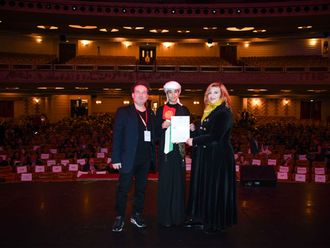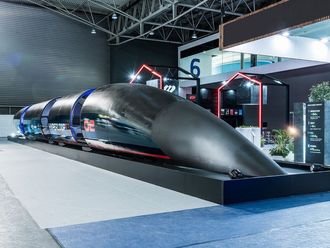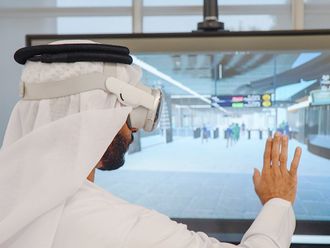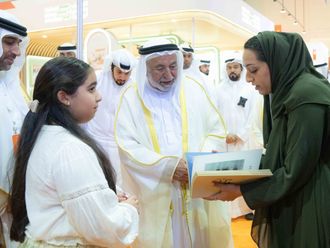Talks began yesterday between Malaysia and the Philippines on deporting Governor Nur Misuari of the Autonomous Region in Muslim Mindanao (ARMM), arrested off the waters of Malaysia's eastern province of Sabah on Saturday morning, along with six of his followers, but the timing and other details remained unclear.
President Gloria Macapagal-Arroyo yesterday directed the Department of Foreign Affairs (DFA) and the Department of Justice to work closely with the Malaysian government and to recognise Kuala Lumpur's prerogative to investigate Misuari.
"Malaysia will be dealing with him first," the president said in an interview with reporters yesterday.
"I called Prime Minister Mahathir Mohammad last night to thank him for the immediate response of his government for our request for assistance in the interdiction of Misuari and his cohorts," the president said even as the Philippines military said he is being probed for links with the notorious Abu Sayyaf kidnap gang.
Mahathir on Saturday rejected the granting of political asylum to Misuari, setting to rest speculation that Malaysia, which once helped the Moro National Liberation Front (MNLF) carry out its uprising in the south during the 1970s, will give him refuge this time.
"We will let Malaysia investigate (Misuari) first for the violation of their own laws and charge him according to their own laws," noted the president.
She added that while there is no extradition treaty between the two countries, there are bilateral and multilateral operational arrangements covering terrorism and trans-national crimes around common borders and common seas.
The Philippines and Malaysia are both active members of the Association of South-east Asian Nations (Asean), which early this month signed an anti-terrorism agreement.
The Arroyo government seems bent on keeping Misuari away from the Philippines in the meantime, as residents of the ARMM decide today to elect his replacement as their governor through elections.
"Personally, I want him to stay in a Malaysian jail," noted Arroyo, who supported Misuari's former aide, Parouk Hussin, in the ARMM gubernatorial polls.
On Thursday, the DFA cancelled both Misuari's regular and diplomatic passports after Arroyo ordered him arrested on rebellion charges.
The ARMM governor is suspected to be behind an uprising Monday last week in his native Sulu province.
The mutiny led to the death of more than a hundred combatants and civilians in the provincial capital of Jolo.
Misuari led the MNLF for more than 30 years until this April, when he was ousted by the organisation's central committee over an alleged inability to administer the ARMM properly after three-and-half years of his governorship.
Misuari had made efforts since then to consolidate his remaining followers.
Last week, he turned his back on a peace agreement signed by the MNLF with Manila in 1996 by leading the Sulu mutiny.
"The absence of Misuari means there is no one to lead opposers of the elections to foment violence," a military official commented.
While the former chief of the MNLF remains in the custody of the Malaysian authorities, Manila is building proof of his alleged links to the Abu Sayyaf, which both the Philippines and Malaysia consider a terrorist group.
The Philippine military yesterday revealed Misuari's alleged links to the abduction of 21 mostly foreign hostages in Sipadan island, Malaysia, last year.
Brigadier General Edilberto Adan, spokesman of the Philippine military, identified two Misuari aides as among those who led the Sipadan abduction.
"We have intelligence reports that one of the trusted men of Misuari and a former MNLF commander, Hadji Dami Sabkullah, were among those who spearheaded the Sipadan kidnapping last year," Brig General Adan noted.
Arroyo said that after Malaysia is through with Misuari "we can effect his repatriation so that he can face the rebellion charges against him in Philippine courts."
Sources in Malaysia, however, said Misuari is likely to be deported to the Philippines in "two to three days".
"In most cases, even if he is treated like any other foreigner who commits border offences, he will be sent back to his home country in a few days," PK Katharason, an editor with the Malaysian daily, The Star, told Gulf News.
Katharason added that Misuari remains in detention by the Royal Malaysian police in Sabah's capital, Kota Kinabalu, and he is likely to be transferred to Kuala Lumpur any time soon.
Our Zamboanga Correspondent Alexander Young adds: Rumours were rife here that Misuari had been released from Malaysian custody and had been allowed to travel to a Gulf country through the intercession of representatives from the Organisation of Islamic Countries (OIC).
Misuari followers have welcomed the news and rejoiced over what they called "a victory for the Bangsamoro people".
Misuari aide, Mohammad Nur Ajihil, claimed Misuari still enjoys the support of most of the member-countries of the OIC, although he admitted Libya has withdrawn its support to Misuari in favour of the faction that ousted him as their leader.
"He's doing fine out of harms way. The OIC is full scale behind him except for Libya, but he's still strong in the OIC," Ajihil said.
National Security Adviser Roilo Golez in Manila, however, dismissed the rumours of Misuari's release as propaganda by his loyalists. "These are just psychological warfare tactics employed by Misuari followers."
Talks under way for Misuari handover
Talks began yesterday between Malaysia and the Philippines on deporting Governor Nur Misuari of the Autonomous Region in Muslim Mindanao (ARMM), arrested off the waters of Malaysia's eastern province of Sabah on Saturday morning, along with six of his followers, but the timing and other details remained unclear.


